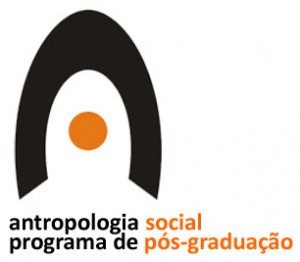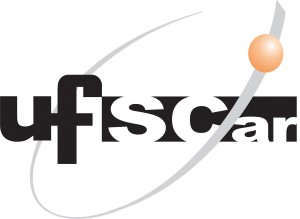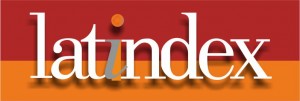Para além de Boas, no espírito de Boas
explorando a semiótica da interação
DOI:
https://doi.org/10.52426/rau.v14i1.408Palavras-chave:
Franz Boas, semiótica, reflexividadeResumo
O objetivo deste artigo é discutir como a linguística brasileira poderia se beneficiar se se aproximasse do espírito dos ensinamentos de Franz Boas. Nascida sob a influência do estruturalismo europeu do Círculo Linguístico de Praga, a linguística brasileira, em primeiro lugar, tardou a reconhecer a riqueza de línguas nativas brasileiras que tinha a seu dispor e a se preocupar com sua descrição. Em segundo lugar, ela se desenvolveu a partir de um viés que buscava afastá-la de outras ciências, isolando a língua da ecologia sócio-histórico-cultural em que ela vive. Ao seguir o espírito de Boas, a linguística brasileira poderia começar a focalizar o estudo da semiose que ocorre nas interações humanas, como parte de atividades vividas por seres humanos reais e inseridos num mundo de práticas que não se limitam à linguagem, mas que envolvem toda a riqueza de seu entorno.
Referências
Altman, Cristina. 2021. A guerra fria estruturalista: estudos em historiografia linguística brasileira. São Paulo: Parábola Editorial.
Beck, David; Gerdts, Donna B. 2017. “The contribution of research on the languages of the Americas to the field of linguistics”. International Journal of American Linguistics, 83(1): 7–39.
Bernstein, Jay H. 2002. “First recipients of anthropological doctorates in the United States, 1891-1930”. American Anthropologist, 104(2): 551–564. https://doi.org/10.1525/aa.2002.104.2.551.
Boas, Franz. 1911. Handbook of American Indian Languages. Washington, DC: Government Printing Office.
Boas, Franz. 2004a. Antropologia cultural. [Seleção, apresentação e tradução de Celso Castro]. Rio de Janeiro: Jorge Zahar Editor.
Boas, Franz. 2004b. A formação da antropologia americana 1883-1911. [Organizado por G.W. Stocking; tradução de M. C. L. Eichernberg]. Rio de Janeiro: Contraponto.
Chafe, Wallace L. 1976. American Indian Languages and American Linguistics: Second Golden Anniversary Symposium of the Linguistic Society of America. Lisse: Peter de Ridder Press.
Chafe, Wallace L. 1994. Discourse, Consciousness, and Time: The flow and displacement of conscious experience in speaking and writing. Chicago/London: The University of California Press.
Chafe, Wallace L.; Tannen, Deborah. 1987. “The relation between written and spoken language”. Annual Review of Anthropology, 16: 383–407.
Darnell, Regna. 2000. And Along Came Boas: Continuity and revolution in Americanist anthropology. Amsterdam/Philadelphia: John Benjamins Publishing Company.
Enfield, Nick J. 2013. Relationship Thinking. Oxford: Oxford University Press.
Epps, Patience; WEBSTER, Anthony K.; WOODBURY, Anthony C. 2017. “A humanities of speaking: Franz Boas and the continuing centrality of texts”. International Journal of American Linguistics, 83(1): 41–78.
Ferguson, Charles A. 1977. Linguistics as anthropology. In: M. Saville-Troike (ed.), Georgetown University Round Table on Language and Linguistics 1977. Washington, DC: Georgetown University Press. pp. 1–12.
Garfinkel, Harold. 2018 [1967]. Estudos de etnometodologia. Petrópolis: Editora Vozes.
Garfinkel, Harold. 2006 [1948]. Seeing Sociologically: The routine grounds of social action. Boulder/London: Paradigm Publishers.
Garfinkel, Harold; Sacks, Harvey. 2012 [1970]. “Sobre estruturas formais de ações práticas”. Veredas Atemática, 16(2): 220–256.
Goffman, Erving. 1979. “Footing”. Semiotica, 25(1/2): 1–29.
Goodwin, Charles. 2018. Co-Operative Action. New York: Cambridge University Press.
Haspelmath, Martin. 2007. “Pre-established categories don’t exist: Consequences for language description and typology”. Linguistic Typology, 11(1): 119–132.
Jakobson, Roman. 1944. “Franz Boas’ Approach to Language”. International Journal of American Linguistics, 10(4): 188–95.
Jakobson, Roman. 1990 [1957]. “Shifters and verbal categories”. In: L. R. Waugh; M. Manville-Burston (eds.), On Language. Cambridge: Cambridge University Press. pp. 386-392.
Kendon, Adam. 2004. Gesture: Visible action as utterance. Cambridge: Cambridge University Press.
Kockelman, Paul. 2013. Agent, Person, Subject, Self. Oxford: Oxford University Press.
Koerner, E. F. K. 2020. Last Papers in Linguistic Historiography. Amsterdam/Philadelphia: John Benjamins Publishing Company.
Levinson, Stephen. 2006. “Cognition at the heart of human interaction”. Discourse Studies, 8(1): 85–93.
Liberman, Kenneth. 2013. More Studies in Ethnomethodology. Albany, NY: State University of New York Press.
Lucy, John. A. 1999. “Reflexivity”. Journal of Linguistic Anthropology, 9(1–2): 212–215.
Mead, Magaret. 1964. “Vicissitudes of the study of the total communication process”. In: T. A. Sebeok; A. S. Hayes; M. C. Bateson (eds.), Approaches to Semiotics: Cultural anthropology, education, linguistics, psychiatry, psychology. The Hague: Mouton & Co. pp. 277–287.
Mufwene, Salikoko S. 2008. Language Evolution: Contact, competition and change. London/New York: Continuum.
Negrão, Esmeralda V.; Viotti, Evani. 2012. “Em busca de uma história linguística”. Revista de Estudos da Linguagem, 20(2): 309-342.
Rezende, Milka de Oliveira. Franz Boas. Brasil Escola. Disponível em: https://brasilescola.uol.com.br/biografia/franz-boas.htm. Acesso em 14 de fevereiro de 2022.
Progovac, Ljiljana. 2019. “Minimalism in the light of biology: What to retain and what to discard?” Frontiers in Psychology, 10:1–4.
Sacks, Harvey; Schegloff, Emanuel A.; Jefferson, Gail. 1974. “A simplest systematics for the organization of turn-taking for conversation”. Language, 50(4): 696–735.
Schegloff, Emanuel A. 1979. “The relevance of repair to syntax-for-conversation”. In: T. Givón (ed.), Syntax and Semantics: Discourse and Syntax. New York: Academic Press. pp. 261-286.
Sidnell, Jack. 2021. “Reframing ‘footing’”. In: M. H. Jacobsen; G. Smith (eds.), The Routledge International Handbook of Goffman Studies. New York: Routledge. pp. 1–17.
Silverstein, Michael. 1976. “Shifters, linguistic categories and cultural description”. In: K. H. Basso; H. A. Selby (eds.), Meaning in Anthropology. Albuquerque, NM: University of New Mexico Press. pp. 11–55.
Slobin, Dan I. 2008. “Breaking the molds: Signed languages and the nature of human language”. Sign Language Studies, 8(2): 114–130.
Streeck, Jürgen. 2009. Gesturecraft: The Manu-facture of Meaning. Amsterdam/Philadelphia: John Benjamins Publishing Company.
Downloads
Publicado
Como Citar
Edição
Seção
Licença
Copyright (c) 2023 Revista de Antropologia da UFSCar

Este trabalho está licenciado sob uma licença Creative Commons Attribution-ShareAlike 4.0 International License.





